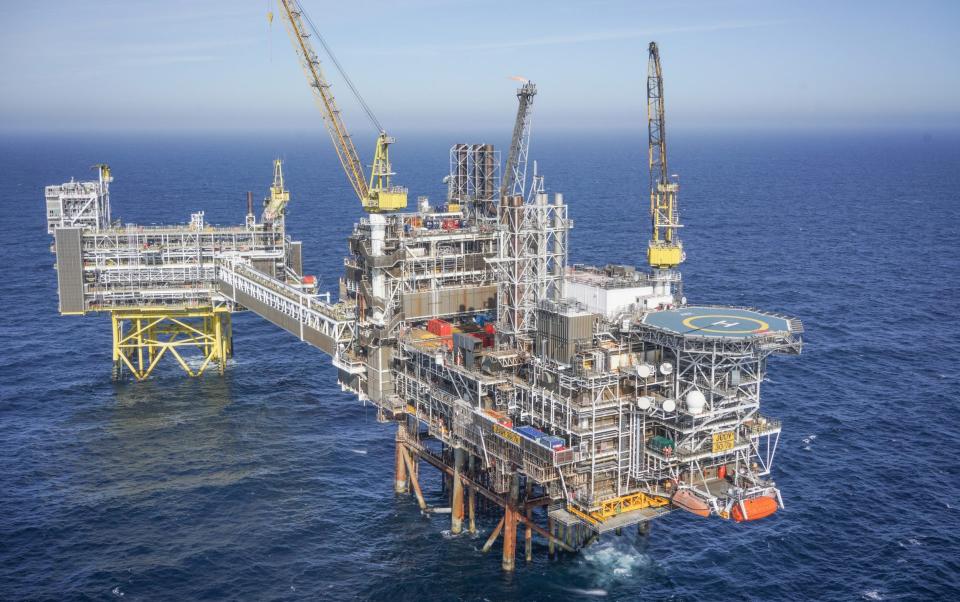Hunt tax raid puts net zero project at risk

A pioneering net zero project is at risk of becoming uneconomic because of Jeremy Hunt’s North Sea windfall tax, its key investor has warned.
Harbour Energy said that the Viking carbon capture scheme is less viable because of the Chancellor’s tax raid.
The company, which is the biggest oil and gas producer in British waters, faced an effective tax rate of 95pc as the UK’s windfall levy took $565m (£443m) out of its 2023 earnings – leaving a profit of just $32m.
Mr Hunt announced in the Budget on Wednesday that the tax would be extended for an extra year until 2029, triggering a backlash from the industry and senior Scottish Tories.
Linda Cook, Harbour’s chief executive, said the levy had impacted the company’s ability to invest in Viking.
She added: “We’re not doing the project for free or for charity – we will require an attractive return for Harbour’s investors.
“If we’re going to invest, our messaging is around the windfall levy where we continue to make the point to the Government that we need a stable and fair and attractive fiscal environment for us to invest – and that includes carbon capture and storage.”
Harbour is the lead partner in Viking, a project to create a transport and storage network in the Humber that will store 10 million tonnes of CO2 a year by 2030.
It is among the companies hardest hit by the Government’s production taxes, which are charged at a nominal rate of 75pc but can rise above 100pc in some circumstances.
The company was founded in 2014 by Washington-based EIG global energy Partners, spending nearly $6bn on platforms and other assets formerly operated by Shell and ConocoPhillips, which are now at the heart of its operations.
It means Harbour’s extensive oil and gas fields off the east coasts of Scotland and East Yorkshire and in the Irish Sea, plus stakes in fields around Shetland, make it a key UK source of fossil fuels. About 90pc of Harbour production has come from the North Sea until now.
However, production has fallen from 208,000 barrels of oil a day in 2022 to around 165,000 barrels in 2024, partly linked to decisions to cut back on new UK wells because of the windfall tax.
Ms Cook said Harbour now plans to shift investment abroad so that UK production would shrink from 95pc of Harbour output to just 25pc.
The company will retain existing UK operations but has ceased North Sea exploration with future investment focused overseas.
In December she announced Harbour had reached a $11.2bn agreement to buy the upstream assets of German oil and gas producer Wintershall Dea from chemicals giant BASF and investor LetterOne. Today she revealed the company had secured a $3bn credit facility and $1.5bn bridging loan to complete the deal.
It means Harbour’s new key assets lie in Norway, Germany, Denmark, Argentina, Mexico, Egypt, Libya and Algeria – and it is effectively moving away from its North Sea roots. Production will rise to 500,000 barrels a day, but with most coming from outside the UK.
She said: “We are excited about our future as we look to continue to build a geographically diverse, large scale, independent oil and gas company.”
It came as Serica Energy, another leading UK oil and gas producer, launched its own attack on the windfall tax.
The company produces oil and gas equivalent to 45,500 barrels of oil a day from its UK operations, mainly off the east coast of Scotland and to the east of Shetland, with all its gas and some of the oil consumed in Britain.
In a production update it reported newly proven reserves of 140 million barrels of oil, up by 10 million from 2022.
However, executive chairman Mitch Flegg used the production update to express “considerable disappointment” over the extension of the windfall tax, warning that there was no longer a windfall and the levy was undermining future investment.
He said: “Current oil and gas prices do not represent windfall conditions for UK producers and increasing the tax burden on domestic oil and gas production again will be damaging for UK jobs and the economy.
“Serica is adding to UK sources of energy. The kind of approach exhibited in the Budget will lead to more imports and reduce the ability of our industry to enhance the UK’s resilience to potential energy shocks in the future.”

 Yahoo Finance
Yahoo Finance 